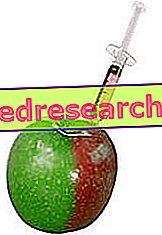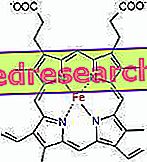
What is Repatha - Evolocumab used for and what is it used for?
Repatha is a medicine used to treat:
- adult patients with primary hypercholesterolemia (high levels of cholesterol in the blood, in particular "LDL cholesterol" or "bad" cholesterol). Primary means that the disease is generally due to a genetic abnormality. Primary hypercholesterolemia includes heterozygous familial hypercholesterolemia (when the genetic anomaly is inherited from a single parent) and unfamiliar hypercholesterolemia (when the genetic anomaly appears spontaneously unprecedented in the family). Repatha is also used to treat mixed dyslipidemia (abnormal levels of fat in the blood, including high levels of LDL cholesterol). Repatha should be used together with a low fat diet in the following cases:
- in association with a statin (another medicine used for lowering cholesterol) or with a statin and other medicines that reduce the level of fat in patients who do not adequately respond to the maximum dose of the statin;
- alone or in combination with other medicines that lower the level of fat in patients who do not tolerate or cannot take statins;
- in adults and children 12 years of age or older with "homozygous familial hypercholesterolemia" (a severe form of hypercholesterolemia caused by a genetic abnormality inherited from both parents).
Repatha should be used in combination with other fat-lowering medicines. Repatha contains the active ingredient evolocumab.
How is Repatha - Evolocumab used?
Before starting treatment with Repatha, secondary causes of hypercholesterolemia and abnormal levels of fat in the blood must be excluded. The medicine can only be obtained with a prescription.
Repatha is available as a solution for injection in a pre-filled syringe or in a pre-filled pen (140 mg). The injection is made under the skin of the abdomen, thigh or upper part of the humerus.
The recommended dose for adults with primary disease is 140 mg every two weeks or 420 mg (the content of three pre-filled syringes) once a month.
For adults and children aged 12 or over with homozygous familial hypercholesterolemia, the recommended starting dose is 420 mg once a month. If the desired response has not been obtained after 12 weeks of treatment, the dose can be increased up to 420 mg every two weeks.
The patient can be injected with Repatha alone after appropriate training.
For more information, see the package leaflet.
How does Repatha - Evolocumab work?
The active substance in Repatha, evolocumab, is a monoclonal antibody. A monoclonal antibody is an antibody (a type of protein) designed to recognize a specific structure (called an antigen) in the body and bind to it.
Evolucumab was designed to bind to a protein called "PCSK9". This protein binds to cholesterol receptors on the surface of liver cells and causes these receptors to be absorbed and split within the cells. These receptors control blood cholesterol levels, especially LDL cholesterol, removing it from the bloodstream. By binding to PCSK9 and blocking it, Repatha prevents the cleavage of receptors within cells and thus increases the number of receptors on the cell surface, where they can bind to LDL cholesterol and remove it from the bloodstream. This helps reduce blood cholesterol levels.
What benefit has Repatha - Evolocumab shown during the studies?
Regarding the treatment of primary hypercholesterolemia and mixed dyslipidemia, Repatha has been studied in nine main studies involving about 7400 adult patients, including patients with heterozygous familial disease. In some studies Repatha was administered alone while in others it was used in combination with other cholesterol-lowering medicines, even in patients taking the maximum recommended statin doses. In some studies Repatha was compared with placebo (a dummy treatment) while in others it was compared with another hypercholesterolemia (ezetimibe) medicine. These studies found a substantial reduction in blood levels of LDL cholesterol (about 60 to 70% more than placebo and about 40% more than ezetimibe) from week 10 to week 12 of the study and at the end of 12 weeks .
In homozygous familial hypercholesterolemia, Repatha has been studied in two main studies involving 155 patients, including 14 children over the age of 12. One of these studies showed that Repatha, given along with other cholesterol-lowering medicines, reduced blood fat levels after 12 weeks of treatment (about 15-32% more than placebo given along with other lowering medicines) cholesterol). A second study showed that long-term use of Repatha allowed a substantial reduction in blood fat levels in these patients over 28 weeks of treatment.
What is the risk associated with Repatha - Evolocumab?
The most common side effects of Repatha (which may affect up to 1 in 10 people) are nasopharyngitis (inflammation of the nose and throat), upper respiratory tract infection (cold), back pain, arthralgia (joint pain), flu and nausea. For the full list of side effects and limitations, see the package leaflet.
Why has Repatha - Evolocumab been approved?
The Agency's Committee for Medicinal Products for Human Use (CHMP) decided that Repatha's benefits are greater than its risks and recommended that it be approved for use in the EU. The committee noted that in all studies in patients with primary hypercholesterolemia and mixed dyslipidemia, including patients taking the maximum recommended statin doses or who were intolerant to them, Repatha showed a significant reduction in LDL cholesterol levels, which is a known risk factor for cardiovascular disease. However, it is not yet known whether Repatha can reduce cardiovascular disease. The committee also found that for patients with homozygous family disease there is an unmet clinical need, as these patients are difficult to treat and present a high risk of developing cardiovascular disease. In this population, which includes some children over the age of 12, Repatha has shown a regular reduction in LDL cholesterol levels higher than can be achieved with currently existing cholesterol-lowering medicines. As for safety, the committee noted that the profile of the medicine is acceptable.
What measures are being taken to ensure the safe and effective use of Repatha - Evolocumab?
A risk management plan has been developed to ensure that Repatha is used as safely as possible. Based on this plan, safety information has been included in the summary of product characteristics and the package leaflet for Repatha, including the appropriate precautions to be followed by healthcare professionals and patients.
More information on Repatha - Evolocumab
On 17 July 2015, the European Commission issued a marketing authorization for Repatha, valid throughout the European Union.
For the full version of the EPAR and the summary of the Repatha risk management plan, consult the website of the Agency: ema.Europa.eu/Find medicine / Human medicines / European public assessment reports. For more information about Repatha therapy, read the package leaflet (also part of the EPAR) or contact your doctor or pharmacist.
Last update of this summary: 08-2015



